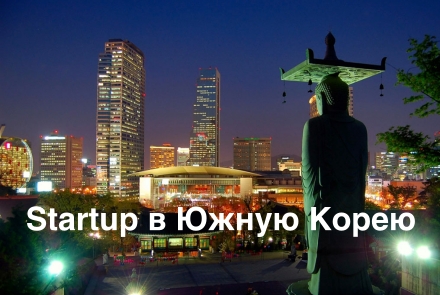Immigration consultant's notes. Startup in South Korea.
Today, South Korea is at the forefront of the development of the global startup movement. But this leadership is not accidental and is provided with comprehensive support of local authorities in terms of tax and investment incentives, visa rules ...
Korea has huge digital potential, primarily in terms of e-commerce, due to the extremely high level of smartphone use in the country. According to CNBC, in the coming years, the country will become the third largest e-commerce market, catching up with China and the United States.
It can be said without exaggeration that human capital is another of the strengths of the Korean startup ecosystem. According to Bloomberg, Korea ranks second in the world in education and already has the highest enrollment rate in universities and colleges among all OECD countries.
According to Startup RADAR, there are more than 30,000 startups in Korea, most of which are distinguished by a professional approach to entrepreneurship and the highest business culture at a level that exceeds the level of such well-known monsters as Samsung, Hyundai and LG.
But in order to become a full partner in the start-up movement in Korea, you should tune in for a very long way.
General requirements for applicants: Bachelor's degree or a letter of recommendation from the Startup Center for Immigration Support (Global Start-up Immigration Center) + at least 80 points on the assessment table of visa applicants + Creation of a corporation.
The skills assessment table takes into account: the education of applicants, the degree of preparedness of the project, the fact of registration of intellectual property rights (patent availability), the amount of investments, etc. The minimum required number of points (80) can be obtained regardless of other indicators if the applicant has a patent or investment amounted to 100 million Korean won (about 75,000 euros).
Currently the following types of visas are available:
Startup Prep VISA (D-10-2), designed for people who want to participate in the Startup movement in technology and business in South Korea. It is issued only to participants in OASIS educational programs and serves to prepare candidates who are subsequently able to organize their startup. Validity of the visa is up to 2 years.
Startup VISA (D-8-4), designed for founders of technology and business startups with a bachelor's degree and intellectual property rights to their product (or equivalent skills).
For most applicants, a phased option for obtaining visas is most acceptable:
1. Participation in the educational part of OASIS programs, for which a short-term or student visa is sufficient. Programs are dedicated to introducing the basics of intellectual property and Startup projects. Based on the results, a certificate is required for applying for a D-10-2 visa.
2. Obtaining a D-10-2 visa and an ARC (Alien Registration Card) - national ID card.
3. Registration of the corporation and joining the OASIS business programs.
4. Obtaining a visa D-8-4 and the beginning of the activity.
To obtain permanent residence status, you must live in the country for at least 3 years (on the basis of a D-8-4 visa), demonstrate a business income of at least 300 million won, and hire at least 2 local employees.
Well, to sum up: The Korean government has announced that it will invest 10 trillion won (approximately 8.0 billion euros) in startups over the next 3 years as part of its innovation and economic growth plan, which will turn South Korea into the “hottest” startup center in Asia.
Let us hope that the coronavirus epidemic will slightly affect the state of the Startup movement in the country.
For questions about organizing Startup projects in South Korea, obtaining visas, arranging financing, optimizing taxation, please contact our specialists.






